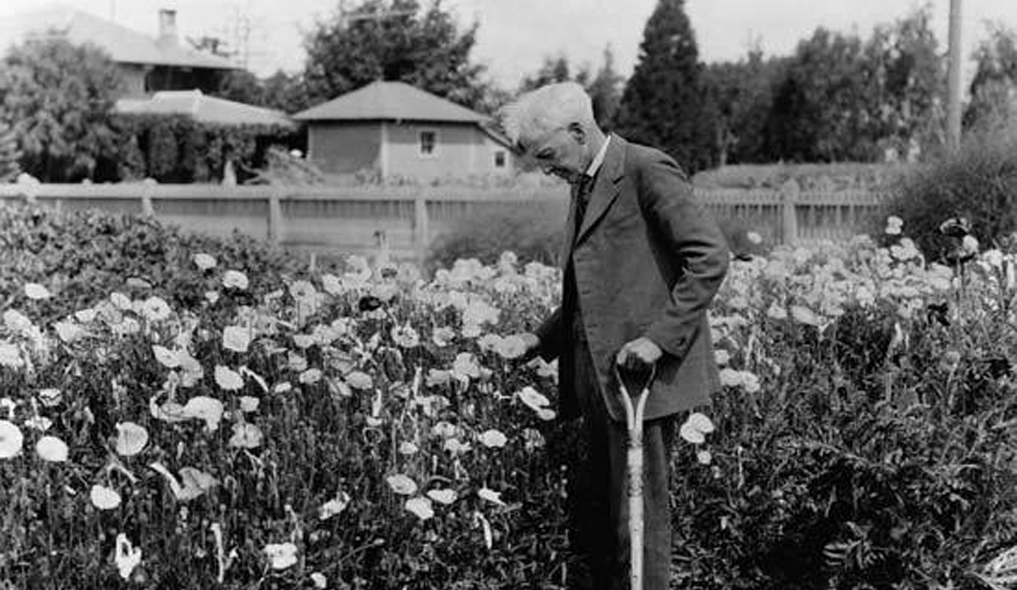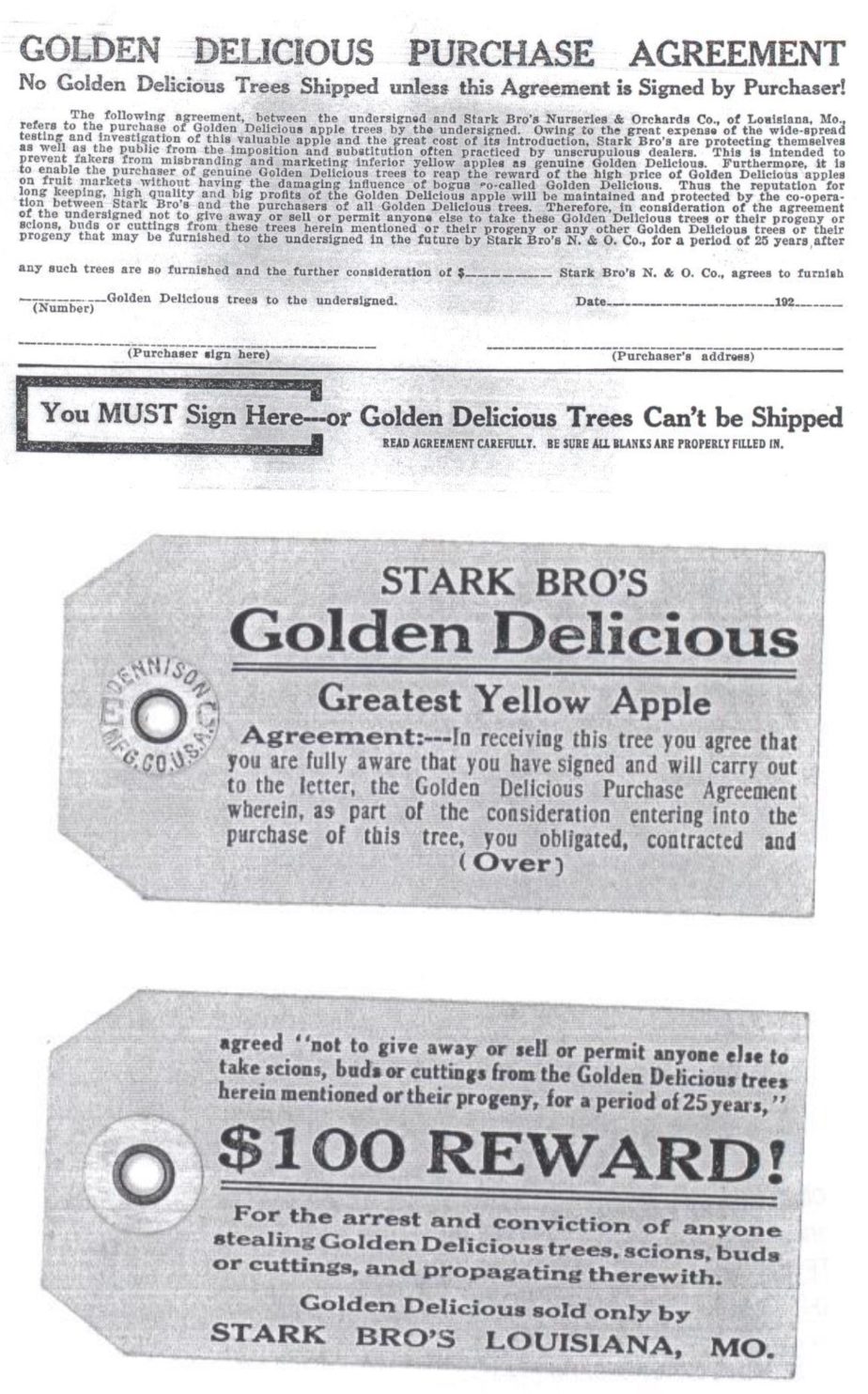Gastropod looks at food through the lens of science and history.
Co-hosts Cynthia Graber and Nicola Twilley serve up a brand new episode every two weeks.
Co-hosts Cynthia Graber and Nicola Twilley serve up a brand new episode every two weeks.

The plant wizard in his famous garden in Santa Rose, California. (Image Credit: Western Sonoma Historical Society)
Jane Smith is a science and natural history write and the author of The Garden of Invention: Luther Burbank and the Business of Breeding Plants.
David Karp is a researcher with the Department of Botany and Plant Sciences at the University of California, Riverside, and co-editor of the Register of New Fruit and Nut Cultivars, which tracks new patented fruits and nuts. His article, "What's in a name? When it comes to fruit, economic and genetic forces have a major say," published in the Los Angeles Times, explores the rise of the trademarked fruit and revealed the alpha-numeric real names behind some of our favorite supermarket varieties.
 Above, the contract that Stark Brothers' Nursey required buyers to sign before they would ship their famous golden delicious apple trees to them; below, the tags that came attached to those trees, reminding nurseries of the contract and soliciting reports about apple thefts.
Above, the contract that Stark Brothers' Nursey required buyers to sign before they would ship their famous golden delicious apple trees to them; below, the tags that came attached to those trees, reminding nurseries of the contract and soliciting reports about apple thefts.
Dan Kevles is a historian of science, including plant breeding, and an emeritus professor at Yale University. He is currently at work on a book on the history of innovation and intellectual property protection for living things, to be published by Alfred A. Knopf.
Author, editor, and journalist Lela Nargi covers the science and policy of food. Her article, "Intellectual property and trademark protections for fruit-growing plants are on the rise—and so are the lawsuits," for The Counter, traces the impact of the Bayh-Dole Act on fruit IP.
 Left, Luther Burbank's famous plant catalog; right, a Stark Brothers' catalog advertising one of Burbank's plums for sale.
Left, Luther Burbank's famous plant catalog; right, a Stark Brothers' catalog advertising one of Burbank's plums for sale.
This episode of Gastropod was supported by a generous grant from the Alfred P. Sloan Foundation for the Public Understanding of Science, Technology, and Economics. Check out the other books, movies, shows, podcasts, and more that they support here.
Click here for a transcript of the show. Please note that the transcript is provided as a courtesy and may contain errors.
Notifications